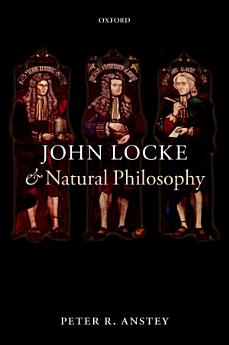John Locke and Natural Philosophy
تیر ۲۰۱۳ · Oxford University Press
ای-کتاب
272
صفحهها
family_home
واجد شرایط
info
reportردهبندیها و مرورها بهتأیید نمیرسند. بیشتر بدانید
درباره این ای-کتاب
Peter Anstey presents a thorough and innovative study of John Locke's views on the method and content of natural philosophy. Focusing on Locke's Essay concerning Human Understanding, but also drawing extensively from his other writings and manuscript remains, Anstey argues that Locke was an advocate of the Experimental Philosophy: the new approach to natural philosophy championed by Robert Boyle and the early Royal Society who were opposed to speculative philosophy. On the question of method, Anstey shows how Locke's pessimism about the prospects for a demonstrative science of nature led him, in the Essay, to promote Francis Bacon's method of natural history, and to downplay the value of hypotheses and analogical reasoning in science. But, according to Anstey, Locke never abandoned the ideal of a demonstrative natural philosophy, for he believed that if we could discover the primary qualities of the tiny corpuscles that constitute material bodies, we could then establish a kind of corpuscular metric that would allow us a genuine science of nature. It was only after the publication of the Essay, however, that Locke came to realize that Newton's Principia provided a model for the role of demonstrative reasoning in science based on principles established upon observation, and this led him to make significant revisions to his views in the 1690s. On the content of Locke's natural philosophy, it is argued that even though Locke adhered to the Experimental Philosophy, he was not averse to speculation about the corpuscular nature of matter. Anstey takes us into new terrain and new interpretations of Locke's thought in his explorations of his mercurialist transmutational chymistry, his theory of generation by seminal principles, and his conventionalism about species.
درباره نویسنده
Peter R. Anstey studied analytic philosophy and the history of philosophy at the University of Sydney. He later took up a U2000 postdoctoral fellowship at Sydney and then a lectureship. In 2006 he moved to Dunedin in New Zealand where he is the inaugural Professor of Early Modern Philosophy in the Department of Philosophy at the University of Otago. His research focuses on early modern philosophy with special reference to the writings of John Locke and Robert Boyle. He is the author of The Philosophy of Robert Boyle (Routledge, 2000).
ردهبندی این کتاب الکترونیک
نظرات خود را به ما بگویید.
اطلاعات مطالعه
تلفن هوشمند و رایانه لوحی
برنامه «کتابهای Google Play» را برای Android و iPad/iPhone بارگیری کنید. بهطور خودکار با حسابتان همگامسازی میشود و به شما امکان میدهد هر کجا که هستید بهصورت آنلاین یا آفلاین بخوانید.
رایانه کیفی و رایانه
با استفاده از مرورگر وب رایانهتان میتوانید به کتابهای صوتی خریداریشده در Google Play گوش دهید.
eReaderها و دستگاههای دیگر
برای خواندن در دستگاههای جوهر الکترونیکی مانند کتابخوانهای الکترونیکی Kobo، باید فایل مدنظرتان را بارگیری و به دستگاه منتقل کنید. برای انتقال فایل به کتابخوانهای الکترونیکی پشتیبانیشده، دستورالعملهای کامل مرکز راهنمایی را دنبال کنید.




